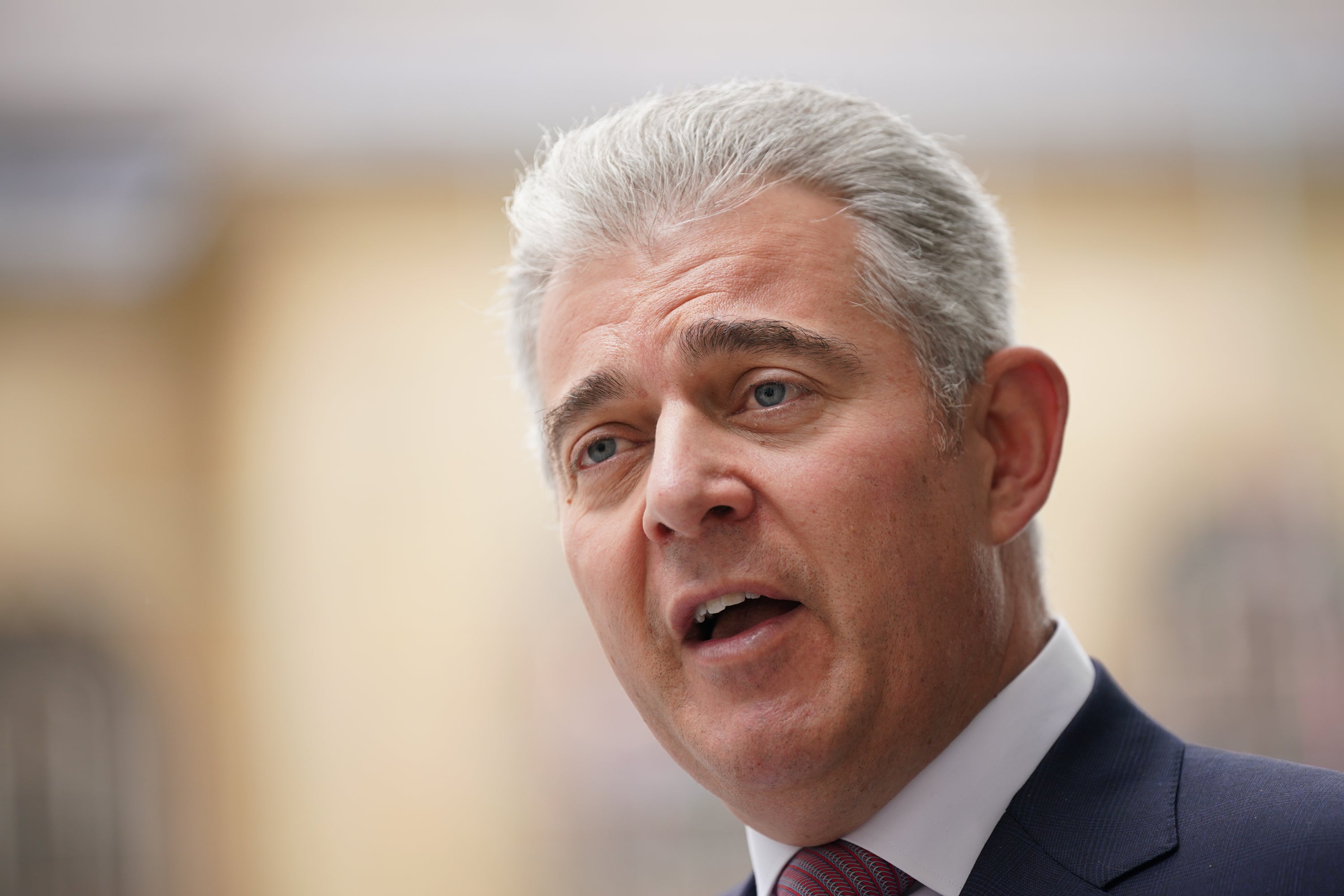Bombings victims group calls on Brandon Lewis to drop ‘obscene’ Northern Ireland legacy bill
Exclusive: Campaigners write to NI secretary and all Tory MPs urging them against ‘shameful’ plan to grant immunity to perpetrators

Your support helps us to tell the story
From reproductive rights to climate change to Big Tech, The Independent is on the ground when the story is developing. Whether it's investigating the financials of Elon Musk's pro-Trump PAC or producing our latest documentary, 'The A Word', which shines a light on the American women fighting for reproductive rights, we know how important it is to parse out the facts from the messaging.
At such a critical moment in US history, we need reporters on the ground. Your donation allows us to keep sending journalists to speak to both sides of the story.
The Independent is trusted by Americans across the entire political spectrum. And unlike many other quality news outlets, we choose not to lock Americans out of our reporting and analysis with paywalls. We believe quality journalism should be available to everyone, paid for by those who can afford it.
Your support makes all the difference.A group of families who lost loved ones in the Birmingham pub bombings has called on Northern Ireland secretary Brandon Lewis to drop an “obscene” bill aimed at ending Troubles prosecutions.
The cabinet minister has been trying to win support for legislation offering the promise of conditional immunity for perpetrators – including former British soldiers and ex-paramilitaries – who agree to give information to a new truth and reconciliation body.
But the Justice for the 21 group – campaigning to get to the truth about the 1974 bombings which claimed the lives of 21 people – has written to Mr Lewis to say: “Please drop this obscene bill.”
In a letter shared with The Independent, Julie Hambleton, said: “I cannot sit back and do nothing or stay quiet … I beseech you to please in conscience drop this bill in its entirety.”
The campaigner, who lost her sister Maxine in the atrocity, added: “Our families and 1,000s of others do not have any wish to be ‘reconciled’ with the murderers who killed our loved ones in cold blood. To support this bill is tantamount to condoning murder.”
Calling it “perhaps the most shameful bill to be put before parliament”, the Justice for the 21 group said providing immunity from prosecution was “simply a way of denying victims access to justice”.
Ms Hambleton – who met the Northern Ireland secretary last month to hear him out on the legislation – also told the minister she had written to all Conservative MPs urging them to vote against the bill.
In a letter to Tory MPs, the campaigner wrote: “Enabling this bill will give any terrorist in the future to come to any of our cities or towns and kill with impunity … Is this the legacy you wish to be party too?”
The Northern Ireland Troubles (Legacy and Reconciliation) Bill would set up a new information retrieval body aimed at offering conditional amnesties to those who come forward with their testimony.
The draft legislation set out by Boris Johnson’s government in May states that immunity from prosecution should be granted if an individual gives an account deemed “true to the best of (their) knowledge and belief”.
Responding to the Justice for the 21 group’s letter, Labour said the government “just isn’t listening” to concerns of families and victims’ groups.
Peter Kyle MP, shadow Northern Ireland secretary, said: “Victims and their families have raised their profound concerns with Tories’ legacy proposals time and again, but the government just isn’t listening.”
The Labour frontbencher added: “As a result, the bill fails to pass one simple but essential test: to provide greater benefit to victims of the Troubles than terrorists.”
All the main parties – including the Democratic Unionist Party (DUP), Sinn Fein, the SDLP and Alliance – have arguing against the bill, calling it a “corruption of justice” and “slap in the face” of victims’ families.
Innocent Victims United and other groups are also opposed. Family members of two Troubles victims, Patricia Burns and Daniel McCready, launched a petition with the Supreme Court last month seeking a decision on the legality of the government’s legislation.
However, a former police chief tasked with investigating Troubles crimes recently expressed hope that controversial legislation can still be amended to gain support from families.
Under the government’s plans, unsolved cases would be subject to reviews undertaken by a new Independent Commission for Reconciliation and Information Recovery (ICRIR).
Jon Boutcher told MPs on the Northern Ireland affairs committee last month that victims were concerned that a review of unsolved crimes in the planned legislation would be “superficial” and not proactively seek fresh information.
The ex-police chief families had to be assured that “every possible line of inquiry has been explored for them to understand what happened to their loved ones”.




Join our commenting forum
Join thought-provoking conversations, follow other Independent readers and see their replies
Comments